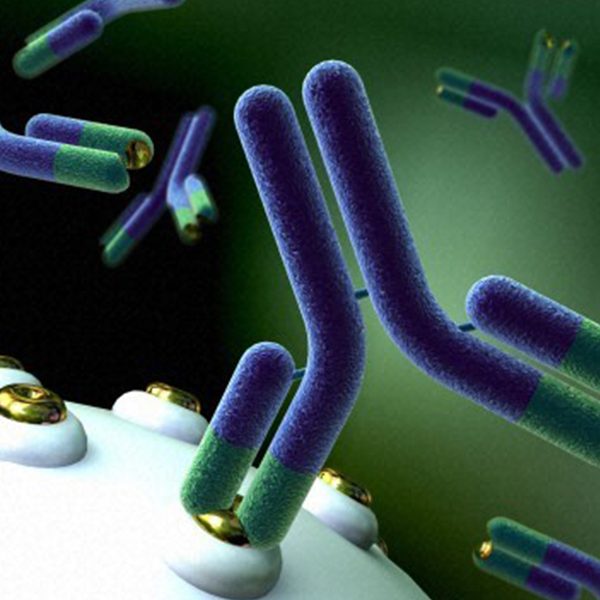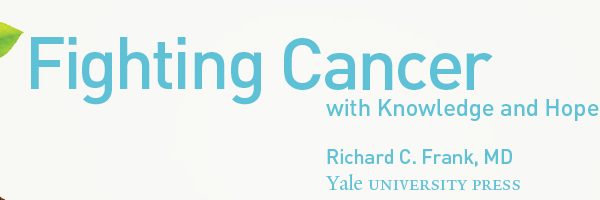LUNG CANCER in 2011: What You Need to Know
Dr. Richard Frank—
Recently in my practice I met an 80 year old woman with lung cancer. Her story began only a year earlier, when she underwent surgery at another hospital to remove a stage 1B non-small cell lung cancer. This is an early stage of lung cancer (out of 4 stages) with a 65-70% cure rate. But something went wrong only one year after surgery. She became suddenly short of breath and developed fluid around the lung that had been operated on. The radiologist and surgeon thought it was “post-operative” changes and monitored her. Her symptoms worsened, however, and the fluid in the lung was sampled and found to contain cancer. A PET scan showed that the cancer had metastasized to other regions of her body. So, at 80 years of age, with a rapidly growing, metastatic lung cancer causing her to be short of breath, have severe chest pain and lose weight and functional capacity, was there any real hope for her survival? Thanks to the modern era of lung cancer treatment, the answer is yes.
The patient was a non-smoker. Approximately 10% of lung cancers occur in non-smokers. In this population, the cancer is fueled by specific genetic changes, rather than the multitude of changes wrought by the carcinogens in tobacco. Two of these changes have been identified:
1) EGFR 2) ALK.
Today, if a non-smoking or remote smoker (last cigarette over 25 years earlier) develops the adenocarcinoma type of lung cancer, then the tumor should be tested for “mutations” in EGFR and ALK. For unknown reasons, EGFR mutations occur more commonly in women, whereas ALK mutations occur more commonly in young men.
If a patient’s tumor has a mutation in EGFR, then the pill erlotinib (Tarceva) should be prescribed rather than chemotherapy as the inital treatment. If an ALK mutation is found, then referral to a clinical trial for an ALK inhibitor should be sought. The drug Crizotinib is the lead compound in this area. The great benefit of these targeted pill therapies is that they can result in excellent cancer responses, sometimes for years, and have greater convenience and fewer side effects than chemotherapy (although they do have side effects). Ultimately, most patients will still require chemotherapy as the beneficial effects of the targeted therapies do wear off. This is due to resistance of the cancer to these treatments; clinical trials of new drugs to overcome this resistance are also underway.
As for my 80 year old patient, her lung cancer had a mutation in EGFR, so I prescribed erlotinib. Three months later, she has a facial rash (like acne, that is treatable) but her chest pain is gone, shortness of breath improved and life as she knew it seems to be returning.
Clearly, the targeted therapy of lung cancer is the silver lining in a disease previously associated with only dark clouds.
Richard C. Frank, M.D., is director of cancer research at the Whittingham Cancer Center of Norwalk Hospital, medical director of Mid-Fairfield Hospice, and Clinical Assistant Attending at Weill Cornell Medical College. He has been appointed cancer expert for WebMD and was named a “Top Doc” in the New York Metro area by Castle and Connelly.
Further Reading:



























Thanks, you have a beautiful way of explaining things so clearly to the lay public and to health personnel like myself who need it explained just as clearly! Always learning from your blogs…R
Dear Rita,
thanks so much for the great feedback. Keep up your great work!
Rich
Hey, you have a great blog here! I’m definitely going to bookmark you!I have a lung cancer walk site. It pretty much covers Cancer related stuff.Come and check it out if you get time
Appreciate the comments here. I’ve just undergone extensive tests and fortunatly was diagnosed with emphysema as opposed to lung cancer. Not ideal, but the better by far of the two evils.
I bet you are a good doctor an oncologist I guess!
My mom two months ago at the age of 62 was diagnosed with adenocarcinoma stage IV EGFR gene mutation. She has been taking Tarceva for about two weeks, has a slight rash but is feeling probably about 80% better. Her coughing has completely ceased and between radiation and the Tarceva she is slowly getting her strength back. Thank you for such helpful good information. So much information out there is negative . You gave me hope when I needed it. MY MOM is also getting her life back!!!Thanks.
Dear Laura,
It sounds like your mom’s cancer is responding to the Tarceva. Here’s hoping it continues for a long time. FYI, there are medicines being developed to overcome resistance to Tarceva should that happen. Look out for trials of them. Let me know if I can help.
Best to you and you mom,
Dr. Frank
Hi Dr. Frank,
I wanted to thank you for your response. That was very nice of you and yes I will keep your name close in case I need some help with clinical trials. I just wanted to let you know that my mom has completed 8 weeks on Tarceva and her results are amazing. The new PET scan showed a 75% improvement of shrinkage of her lung tumor, the spot on her liver is gone and lymph node involvment is also shrinking! We are ecstatic. She will be going back to work next month! Truly amazing especially in such short time!
My father is currently about to start chemo for non-small cell advanced lung cancer that has metastasized to the liver. He is a cigar smoker, but they have not done the tests yet for the biological markers even though he is six weeks into this. He is suffering from serious weight loss, pain and severe weakness. A friend in the medical field also mentioned an even newer drug Yale started using or testing for advanced metastasized non small cell lung cancer this summer that has had great results. Is that correct?
Thank you all for your comments. Clinical trials testing new drugs are available at community and academic medical centers so start with your oncologist and also check out what nearby centers have in terms of promising approaches worth traveling for.
DR. Frank